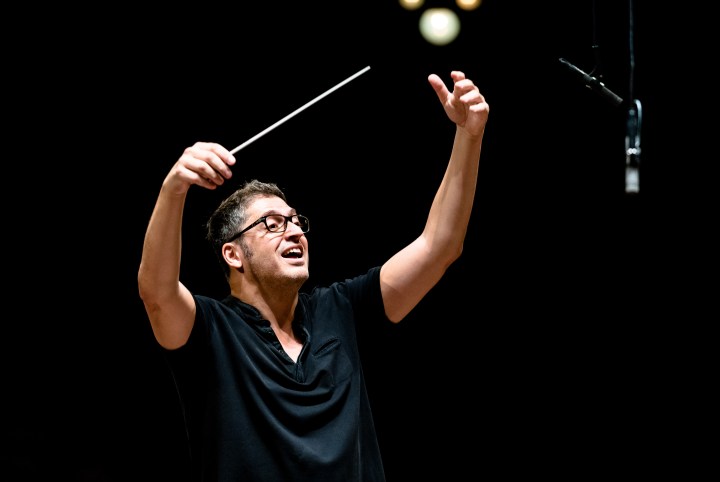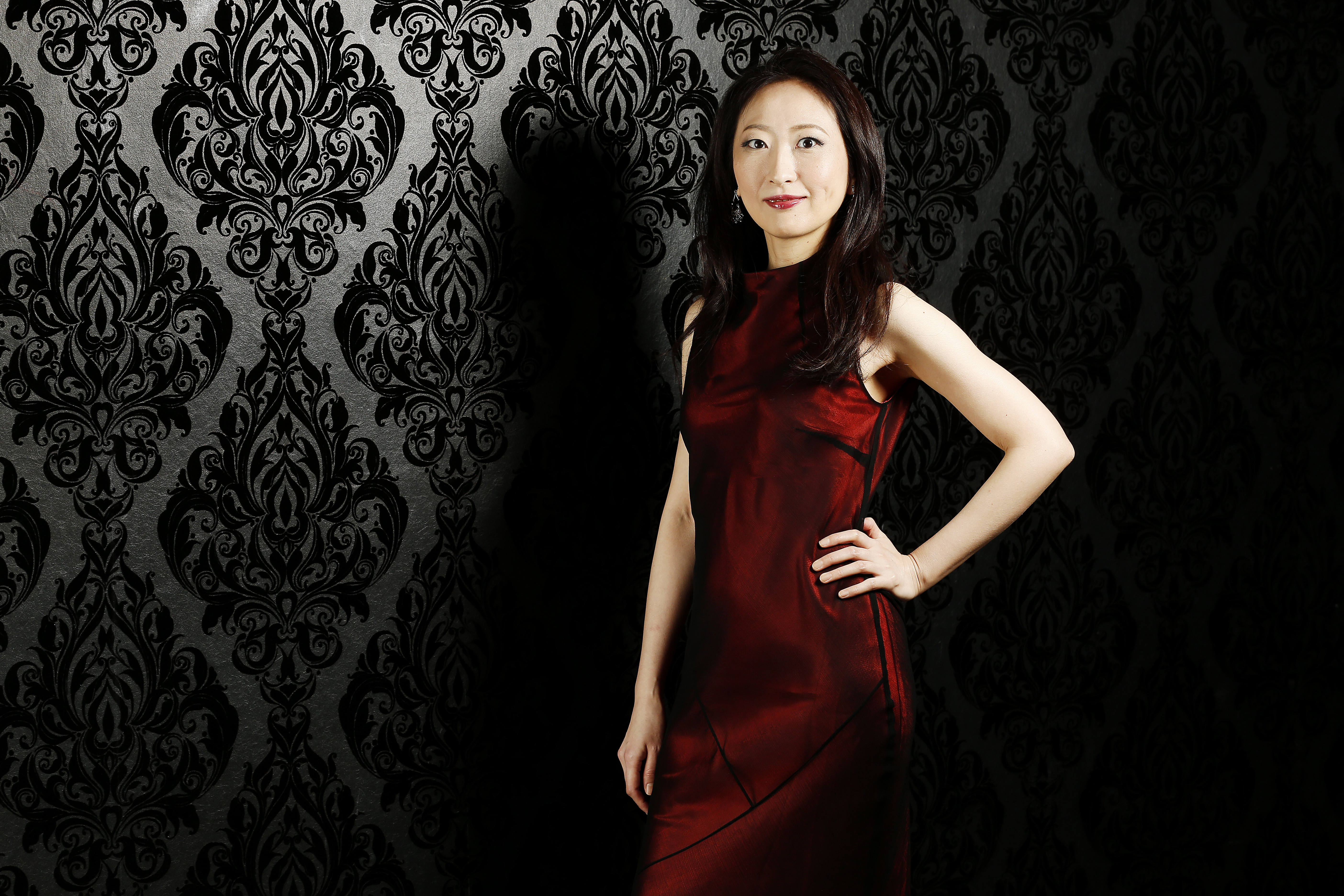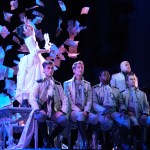CLASSICAL MUSIC
High notes from the Johannesburg Philharmonic Orchestra’s Winter and early Spring seasons

Drawing from a canon of classics, these recent performances were a reminder that great music of the past can still resound passionately, wherever it’s played.
To concert-goers, a Johannesburg Philharmonic Orchestra (JPO) season may simply be a matter of a short venture to Parktown, and an hour or two of reposeful listening. But the event is the outcome of tenacious and dedicated efforts by administrators, technicians, marketers and, above all, the musicians.
And yet, as much as hard work is necessary, factors that keep devoted listeners returning originate from the ether. There’s the fulfilling pleasure of hearing finely crafted works treated with care and consideration. There’s the ineffable human connection when inner worlds are shared through art. And there’s the miraculous alchemy by which a series of pitches, rhythms and timbres is transmuted into an exalted emotional experience, sometimes even a spiritual one.
Canon of classics
Half the work of gratifying an audience is already done by the composer, before the concert (centuries before, as is invariably the case with the JPO). The revered canon of classics supplies sure-fire hits like the Emperor Concerto, the New World Symphony and The Four Seasons, and some programmes can seem like a randomised mix-and-match of such dependable works. Other than Roelof Temmingh’s anodyne Clarinet Concerto, there would be no clue that the orchestra was being managed in 21st-century South Africa rather than, say, by a dowdy aunt from North America or Europe.
Sometimes leaning so heavily on an ossified core repertoire is a drag, like watching reruns of old sitcoms, or being told the same story over and over. An Early Spring line-up of retreads of Weber, Mendelssohn, Dvořák, Tchaikovsky, Schumann and Beethoven inspired very little arousal ahead of the season.
On the other hand, great music remains great when it isn’t tired out. I’ve particularly enjoyed the unofficial JPO series surrounding the 150th birthday of the Russian composer Rachmaninoff, both a great artist for the ages and a reliable crowd-pleaser since the days of Tsar Nicholas II.
Rhapsodic Rachmaninoff
On the chilly first night of the Winter Season (which sold out well in advance), we heard Rachmaninoff’s Rhapsody on a Theme of Paganini, a 1934 joy-ride through late-Romantic tropes and Gershwin-inspired delights. The soloist was the young Bulgarian pianist Emanuil Ivanov, whose confidence and skill belied his youth. I was surprised to learn later that it was his first time performing the Rhapsody, which I never would have guessed, so ably and gleefully did he perform each of the 24 variations.
Above all, the performance highlighted the great moment-to-moment joy of Rachmaninoff’s work, alight with jumping, dancing, glittering, whirling, creeping, marching, swooning, shining, shimmering, splendidness… Variation Nine has a jumping syncopated rhythm in A minor, with the piano running against the orchestra’s beat. It sounded like a chase scene in the hard-boiled black-and-white Humphrey Bogart movies.
Variation Ten has the traditional Dies Irae chant hammered out in the brass, an enduring obsession of Rachmaninoff’s. In Variation Twenty-Three, the energy is further heightened when he ratchets the key upwards a couple of times in quick succession (think Beyoncé’s Love on Top, but with cymbals and jazz-leaning harmonies).
Later in the season, Daniel Boico led the JPO in the composer’s propulsive Third Symphony, which replaces the plush Romanticism of his earlier favourites with the brash modernism of his later life in the US. The JPO demonstrated Rachmaninoff’s wonderful weirdness, as it danced through experimental harmonies, tense and driving rhythms, and whirling witticisms in a compact musical structure.
Classic concertos
Well-worn chestnuts are also suitable opportunities for young virtuosi to display their show-stopping pyrotechnics. Yeon-Min Park, a Korean pianist, pulled off Liszt’s E-flat Piano Concerto dazzlingly, as well as with charm, and topped it off with a spirited La Campanella. The Dutch violinist Rosanne Philippens channelled the fiery showmanship of Sammy Davis Jr in Chausson’s lush and rhapsodic Poème, and Sarasate’s vivacious Zigeunerweisen.
And Etsuko Hirose, from Japan, pulled off a sensitive and idiosyncratic rendition of Schumann’s marvellous Piano Concerto. She played some passages with an intriguing detachment and careful metric precision, as if she were deconstructing the music for closer inspection. Her solo part was wonderfully integrated with the fabric of the orchestra, and the rapturous finale soared to a euphoric close. It was all the more exciting for the few moments when she played on in the dark (load shedding, presumably), and for her reprise of La Campanella.

Pinaist Etsuko Hirose. (Photo: Courtesy of the artist, on the website www.etsukohirose.com)
Respighi’s rare gem
Some of the greatest thrills for regular attendees are the rarely heard gems, like Respighi’s Ancient Airs and Dances, Suite No 3. I fondly remember a 2011 JPO concert featuring his beguiling Adoration of the Magi, and I’ve been patiently waiting for the return of Respighi ever since. The Suite is a very different work, one that looks back at much older musical forms, and with a melancholy that arrived late in the composer’s life.
Boico led a fantastically synchronised ensemble in this Suite, and the JPO strings delivered beautifully soft, velvety plush sounds. The third movement is the gracefully plangent Siciliana, which glides from minor to major, and plaintively lilts in a folk melody. In the middle section, the lilt is replaced with turbulence, and the players’ switch to sharp, hard down-bows was so sudden and yet so unified, that it struck like a bolt of lightning.
A standout concert
The best single night in the Winter and Early Spring seasons was the second-last concert, in which Rachmaninoff’s titanic Third Piano Concerto was paired with Tchaikovsky’s Sixth Symphony. Words are not equal to conveying the tremendous performance given by the pianist Evgeny Konnov, in a concerto that demands just about everything a soloist can physically execute. His dizzying skill triumphed, from the extremes of dark and furious angst to the most tender touches of lightness.
The conductor, Claudia Patanè, brought her Italianate elegance to both works, and drew a stunningly crisp, intensely colourful and ultimately moving rendition of Tchaikovsky’s final, most heart-wrenching symphony. The grand sweep and powerful forwards momentum of the first three movements gave way to a tragic close, where the final B-minor chord fades into ashes and dust. The great music of the past can still resound passionately, wherever it’s played. DM
You can find more information on the JPO, and join their mailing list, here. Videos and audio recordings of performances are available on their YouTube channel.



















Comments - Please login in order to comment.